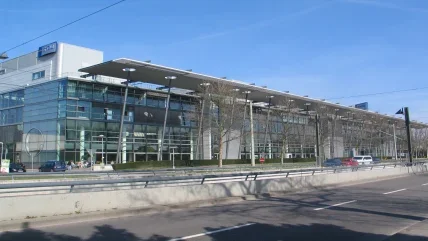
EnBW is set to invest approximately €1bn in the establishment and expansion of a national hydrogen core network in Germany.
This network, in line with the German government’s plans, is expected to be constructed by 2032, ultimately becoming a crucial part of the future European Hydrogen Backbone (EHB). This core network aims to supply hydrogen to major industrial centres, power plants, and generation facilities, while also opening transnational corridors for hydrogen imports.
As part of a joint application by German transmission system operators, EnBW’s subsidiary terranets bw, along with VNG/ONTRAS Gastransport, has submitted specific pipeline project commitments to the Federal Network Agency. These pipelines, created by converting existing infrastructure and building new connections, are designed to link Baden-Württemberg and significant parts of eastern and central Germany to the hydrogen core network. However, this application still requires approval from the Federal Network Agency.
EnBW has assured through its subsidiary terranets bw that the South German natural gas pipeline (SEL), currently under construction, will be integrated into the hydrogen core network. Upon completion, the SEL will initially supply natural gas and later hydrogen to consumers in Baden-Württemberg. This includes the hydrogen-ready gas power plants in Heilbronn, Altbach/Deizisau, and Stuttgart-Münster. Utilising the SEL for the hydrogen core network saves both time and money, as it is already largely hydrogen-ready. Further potential projects include transport pipelines to Upper Swabia and Lake Constance, as well as a cross-border connection from France to the Breisgau region.
The VNG subsidiary ONTRAS will construct hydrogen transport pipelines in central Germany, linking the Leipzig region with the central German chemical triangle, the industrial centres in Saxony-Anhalt and Lower Saxony, the Berlin region, and the Meissen industrial arc. Other potential projects include connections south of Berlin via Eisenhüttenstadt to Poland, stretching as far as Lusatia, the section south of Rostock to Glasewitz, and other connecting pipelines.
The Federal Network Agency is set to consult in the coming weeks on the core network application submitted by the transmission system operators. The hydrogen transport infrastructure will gradually be developed further based on demand, as part of the integrated gas/H₂ network development planning process.
EnBW System Critical Infrastructure board member Dirk Güsewell said: “The hydrogen core network represents the first step into the hydrogen economy of the future, establishing the basis for the complete decarbonization of the German economy and the achievement of climate targets.
“EnBW welcomes and supports this groundbreaking project. This marks the beginning of another important chapter in the energy transition, in which our company will invest a total of around 40 billion euros by 2030.”






